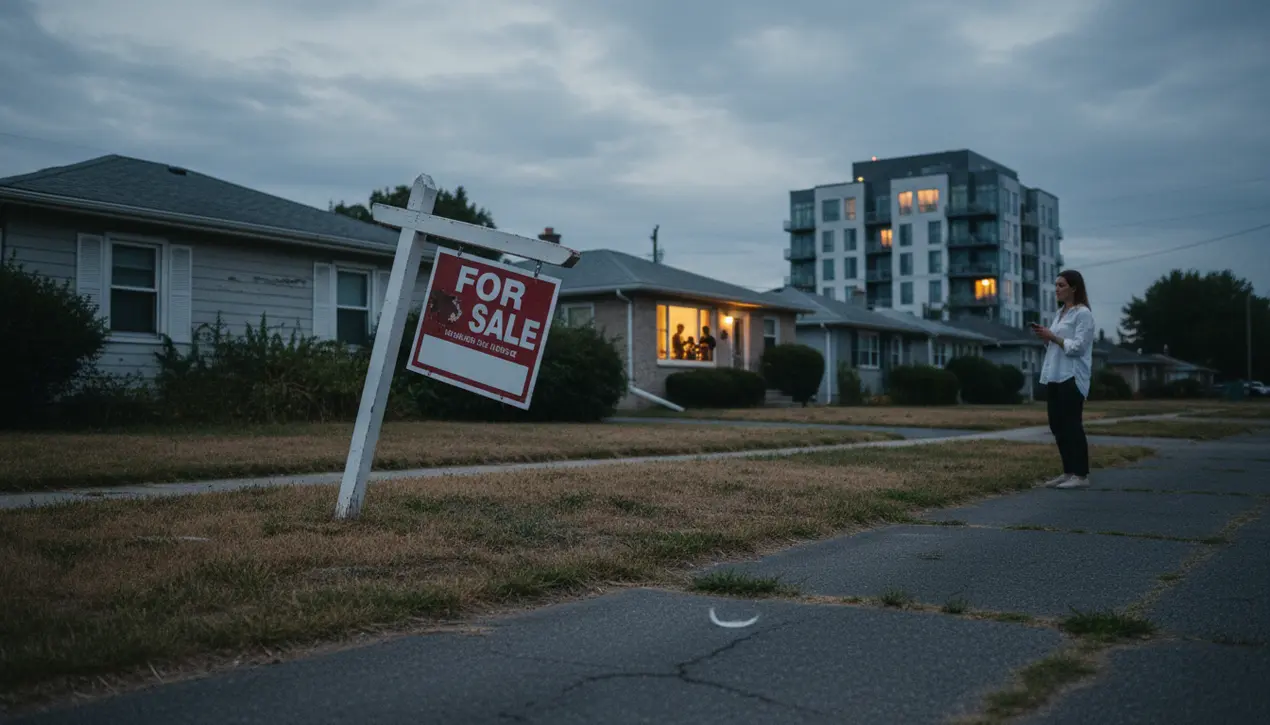
Otherreal estateHousing Market Trends
The Overrated Dream: Rethinking the Financial and Personal Costs of Homeownership
ET
Ethan Brown
2 hours ago7 min read2 comments
The American Dream has long been synonymous with a white picket fence and a mortgage, but a growing number of financial experts and lifestyle advocates are challenging this core belief. Jerusalem Demsas, editor-in-chief of The Argument, is a leading voice in this critique, declaring that 'Homeownership is overrated'—a stark contrast to the 70 percent of Americans who still view it as a primary path to wealth.The financial argument for buying a home, often presented as a guaranteed win, is far more fragile than it appears. The two main advantages—the forced savings of a mortgage and the promise of high returns—are fraught with conditions that can transform a valuable asset into a financial burden.While mortgage payments do build equity in a way rent does not, this benefit only materializes if you can avoid being forced to sell during a downturn. The Great Recession was a painful reminder that job loss, health crises, or family changes can trigger a sale at a market low, locking in financial losses and sacrificing favorable interest rates.Moreover, the full cost of ownership—including property taxes, insurance, and the relentless, unpredictable expenses of maintenance, from a leaky roof to a failed appliance—often significantly surpasses the cost of renting. The money saved by not owning represents a major opportunity.As Warren Buffett's principles suggest, this capital could be invested in diversified, low-cost index funds, which have historically delivered returns that outperform the average single-family home's appreciation, all without the leveraged risk or the endless chores of property upkeep. The psychological pull of homeownership remains strong, however.For over a century, it has been politically and culturally framed as a sign of a stable, committed citizen, in contrast to the transient renter—a narrative that gained momentum during early 20th-century immigration waves. This created an artificial divide between rooted homeowners and disconnected renters.In practice, the financial strain of buying a home often pushes first-time buyers to prioritize square footage over location, distancing them from the communities where they have built social and professional ties. As a renter, one can frequently afford to live in a vibrant, well-connected neighborhood, enabling a richer daily life with easier access to friends, family, and employment—a form of community engagement that a remote suburban mortgage may actually hinder.The dream itself, that iconic symbol of freedom and success, is a powerful stand-in for a deeper yearning for economic security and independence. But genuine freedom isn't achieved by being tethered to a volatile, illiquid, and highly leveraged asset; it's found in financial flexibility and liquidity.For a generation facing economic uncertainty, the ability to relocate for a career opportunity, to avoid the catastrophe of an underwater mortgage, or to simply reclaim weekends from yard work and repairs offers a compelling new vision of the good life. The dialogue is evolving from a blind chase for ownership to a more thoughtful assessment of what truly defines economic and personal freedom today.
#homeownership
#renting
#real estate
#personal finance
#American dream
#editorial picks news
Stay Informed. Act Smarter.
Get weekly highlights, major headlines, and expert insights — then put your knowledge to work in our live prediction markets.
Related News
Comments
Loading comments...
© 2025 Outpoll Service LTD. All rights reserved.